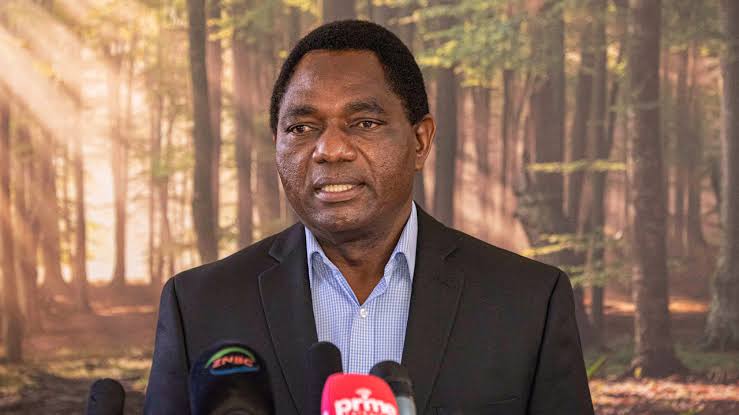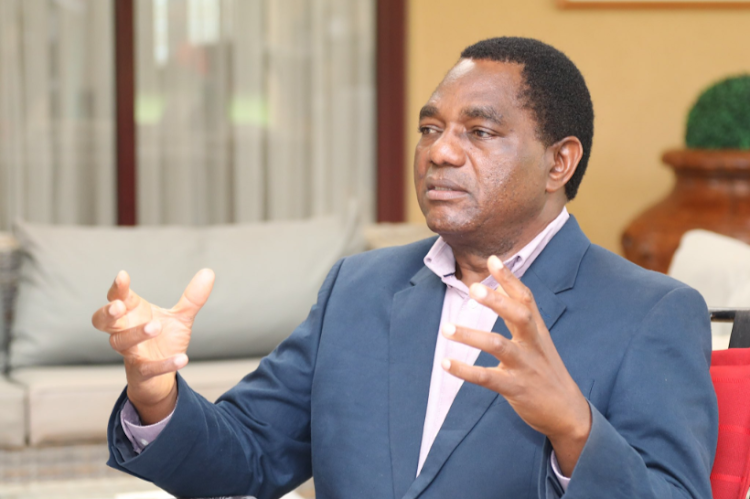
Faith Nyasuguta
Zambian President Hakainde Hichilema has declared a national disaster and emergency due to a severe drought, exacerbating challenges already faced by the country recovering from a recent cholera epidemic.
This southern African nation, like its neighbors, is grappling with the impact of the El Niño phenomenon, contributing to harsh weather conditions associated with climate change.
President Hichilema highlighted the dire situation in a national address, emphasizing the devastating effects on food production and power generation. He announced that 84 out of 116 districts were affected by the prolonged drought. To address the crisis, security forces have been directed to prioritize food production.
The government plans to redistribute surplus food from unaffected areas to those in need and increase food imports with the assistance of UN agencies and local businesses.
The drought has taken a toll on agriculture, destroying approximately 1 million hectares of the 2.2 million hectares planted with corn, a staple crop in Zambia.
President Hichilema emphasized the severe consequences on various sectors, including agriculture, water availability, and energy supply, putting national food security and millions of livelihoods at risk. The drought is anticipated to persist until March, affecting over a million agricultural households.
Electricity production has also been impacted, with an expected deficit of around 430 megawatts, potentially reaching 520 megawatts by December. This shortfall is attributed to decreasing water levels in the Kariba Dam, the country’s main source of hydroelectric power, shared with Zimbabwe. To address the energy crisis, Zambia plans to import electricity and implement rationing measures for its approximately 20 million inhabitants.
Zambia recently faced a severe cholera outbreak, claiming over 400 lives and infecting more than 10,000 people. The country is now grappling with what some describe as a “triple tragedy” – the combined challenges of the cholera epidemic, the ongoing COVID-19 pandemic, and the current drought.
While Zambia has declared a national disaster, many other countries in southern Africa are also experiencing dire conditions due to the El Niño weather phenomenon.

The Food Program Global, a UN agency, reports that parts of Zambia, Zimbabwe, and Botswana are facing the driest February in 40 years. Severe rainfall shortages are recorded in southern Malawi, eastern Angola, and some parts of Mozambique.
The United States Agency for International Development (USAID) estimates that 20 million people in Africa and Australia will require food aid between January and March. Areas of greatest concern include Zimbabwe, southern Malawi, parts of Mozambique, and southern Madagascar.
USAID predicts that many residents in these regions will struggle to feed themselves until the beginning of 2025 due to the impacts of El Niño.
The triple challenges of cholera, drought, and the persistent effects of the COVID-19 pandemic underscore the urgency for coordinated efforts and international support to address the multifaceted crises faced by Zambia and other affected nations in the region.
RELATED:




